Juki overlocks: pros and cons, models, choices
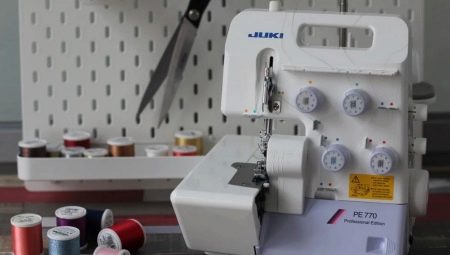
Overlock is a sewing machine with a looper that allows you to sew an elastic overlock stitch, which is indispensable when working with many types of fabrics. The Juki overlock is a professional sewing tool from a popular Japanese brand. This technique is distinguished by reliability, convenience and innovative technologies. You can safely purchase Juki products both for your home and for your own sewing workshop.
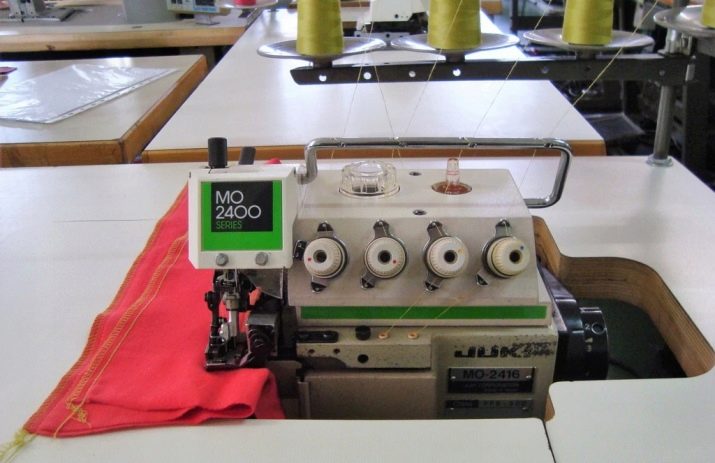
Advantages and disadvantages
The advantages of this brand overlocks include, first of all, the highest quality of workmanship. They also proved to be a convenient and understandable technique in terms of setup and operation. At the same time, the capabilities of Juki overlocks can be very rich, depending on the specific modification, or, conversely, meet the basic requirements of a novice user.
Most modern models have advanced functions, the purpose of which is - facilitate the work and minimize the necessary manual operations. As with any technical field, Juki overlock design engineers strive to automate their machines.
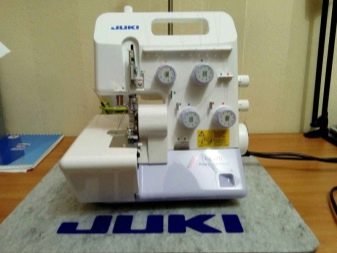
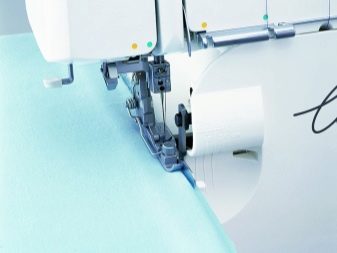
The disadvantages are probably the high cost of this brand's products. You have to pay for quality and comfort, although there are models belonging to different price categories.
In addition, some users have noted the lack of clarity in the official instructions that come with Juki products. The production of machines of this brand is located in Japan and China., so manufacturers do not have problems with instructions in the languages of these countries, as well as in English, but there are really difficulties with the support of Russian-speaking consumers. However, this is fully compensated the ease of control of Juki overlocks.

Models
When choosing a specific overlock model, it is recommended to proceed from your needs and budget. Each of them is characterized by a certain set of capabilities and the number of supported seams.
- Juki B-950 is not the most expensive overlocker, but it surprises users with its impeccable stitching quality. It also processes a wide variety of fabrics, even heavy and thick materials that are difficult to sew. Many call it the best model in its segment. 2, 3 and 4 thread stitches are supported. It is powerful and fast enough to handle large volumes of work in a short amount of time.
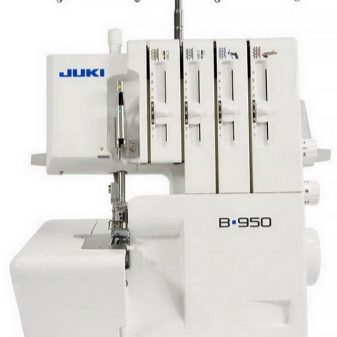
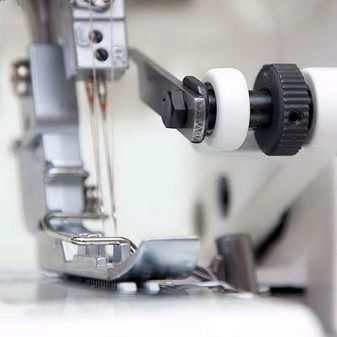
This model has a smooth differential feed of the fabric, adjustable stitch sizes and pressure on the fabric. The thread tension is also adjustable.
- Juki MO-644D - a cheaper model. Accordingly, its capabilities are also much more modest, but still the overlock meets all basic requirements, performing 15 types of seams, including two stitches. The model has a high sewing speed - 1500 stitches per minute. There is support for rolled seam, customizable illumination of the working area.
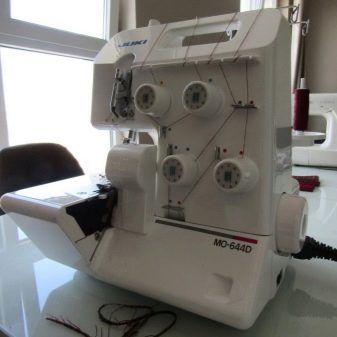
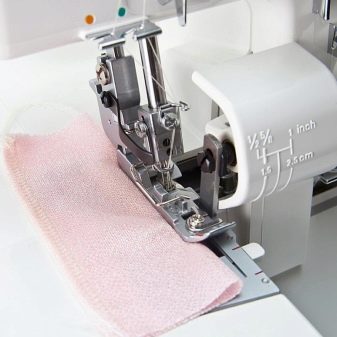
- Juki MO-51eN - another model from the budget category. Supports 7 operations, work with different materials, stitch length is adjustable. On this machine, you do not switch between different types of stitches, but get one or another seam by means of a certain threading.
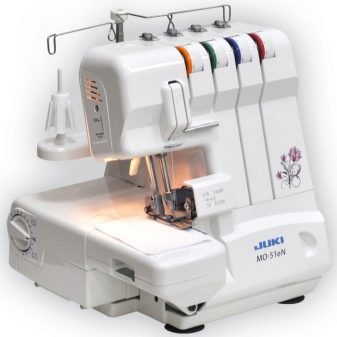
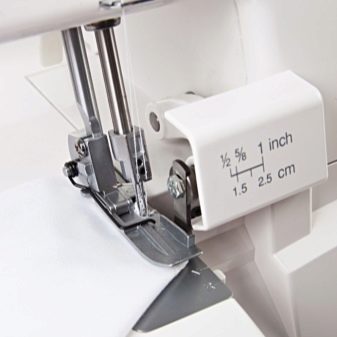
- Juki MO-735 is a carpetlock, that is, in addition to overlock seams, it also performs cover seams. This is a slightly different class of sewing machines, they are more versatile - flat seams and a chain stitch are added to the basic capabilities of the overlock, which is simply necessary when working with some types of fabrics (thin, loose and others). Accordingly, such machines are more expensive than conventional overlocks.
Just in this respect, the advantage of this model is its relatively low cost (I mean, in comparison with other carpet blocks). At the same time, it supports 24 types of different seams and can sew at a speed of 1500 stitches per minute. In combination with the differential, this results in high working performance.
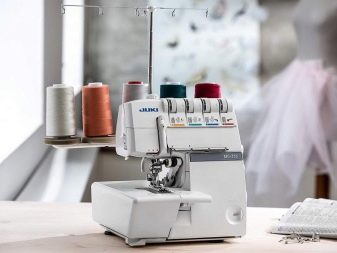
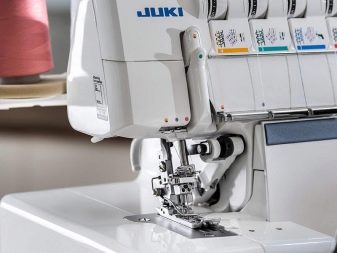
- Overlocker Juki MO-50e also quite cheap, can make 6 different stitches (work with two threads is not supported). There is a backlight, color-coded threading and convenient adjustment of the fabric pressure. The Lay-In-System, a direct threading system, greatly simplifies the process of preparing the machine for work.
If you do not care about the support of double-thread seams, you can safely choose this particular model. In all other respects, this overlock is quite tempting both in terms of its price and capabilities.
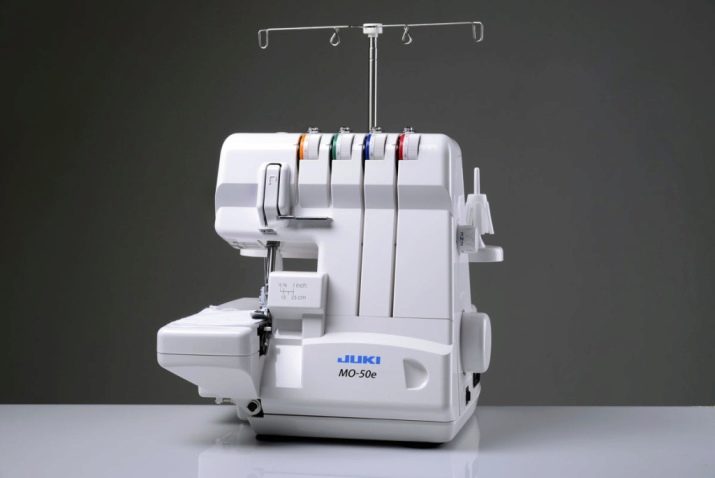
- JUKI M0-3604 Is a specialized three-thread overlock designed for overcasting. Works with light, medium and heavy materials. Has a differential feed of the fabric.
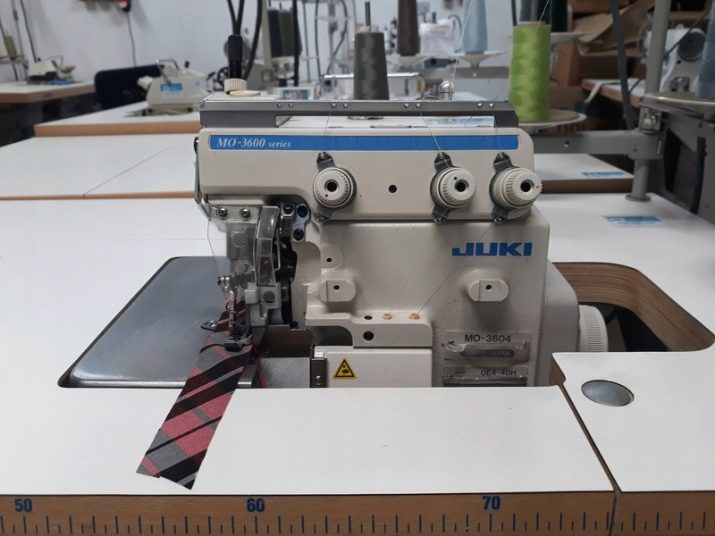
- Juki PE 770 belongs to the middle price category, is simple and reliable. Has a color scheme of threading. Runs at high speed (1500 stitches per minute), one useful part is the needle threader for the lower looper. So for those who do not intend to spend a large budget on the purchase of an overlock, but want to work with fast and reliable equipment, this is one of the most suitable options.
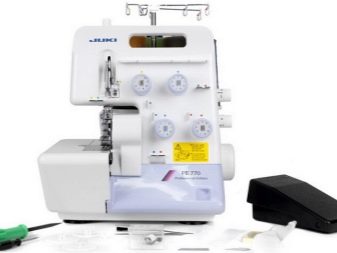
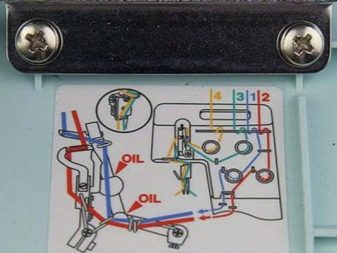
- Juki MO-55e - professional class overlock. Supports work with different seams - from 2 to 4-thread, including rolled. It has a smooth differential material feed and has a low noise level. The state-of-the-art lower looper threading system saves you a lot of hassle. Therefore, if you are looking for a quiet, reliable and versatile machine with high quality seams, you can opt for this model.
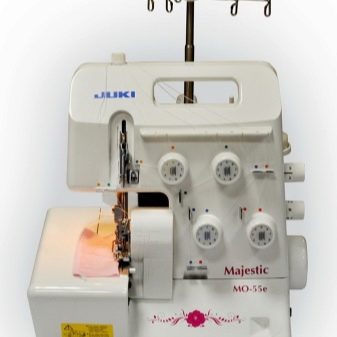
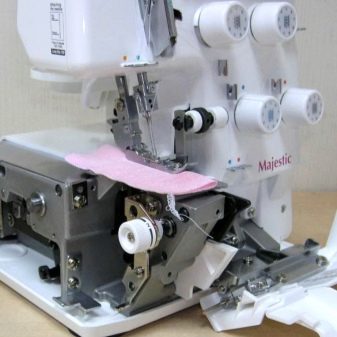
- Juki PE 670 also belongs to high-class professional models. True, it does not support dual-threading. This is a versatile overlocker - it can sew any material, the stitch sizes are adjustable, the sewing speed is 1500 stitches per minute. Adjusting the thread tension is easy and convenient. This model can be recommended for both novice seamstresses and experienced professionals.
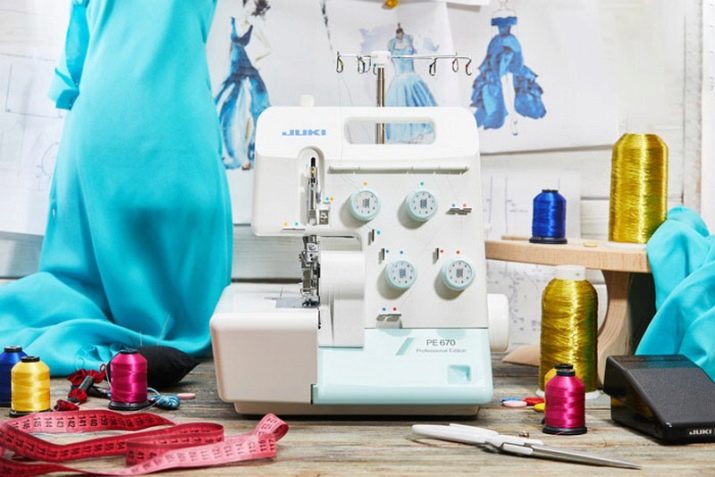
- Juki B-850 similar to the previous one, it also supports three-thread or four-thread stitching, it is easy to customize. Users note the differential's good performance, which ensures consistently smooth fabric feeding and perfect seam quality. Working on this overlock, regardless of the nature of the material, you will receive a flawless, factory-like, even stitching.
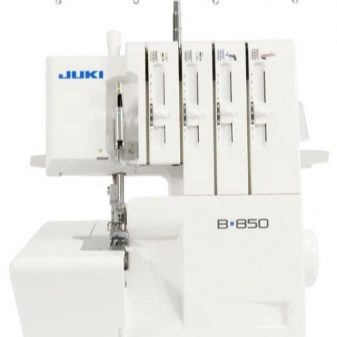
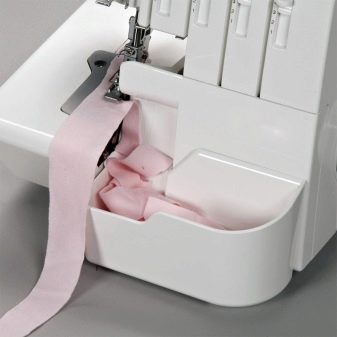
Choice
As you can see, Juki provides you with a wide range of models. Depending on your professional needs and budget, you can choose the overlock that suits you, which will become both a reliable home assistant and a professional tool for the workshop. Wherein we advise you to focus on the technical characteristics given above or indicated on the store's website, as well as customer reviews.
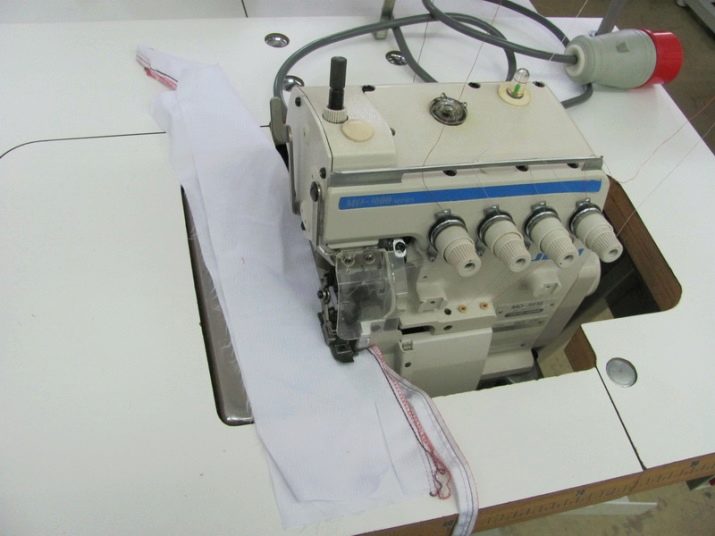
It is worth purchasing an overlock only from official suppliers, which give a guarantee for their goods. It is better that the complete set with the overlock has everything you need for work - feet, a stitch plate, a pedal, a needle holder for the overlock, an instruction manual.
The warranty period is usually a year or two. Generally the service life of the machines of this brand exceeds ten years.
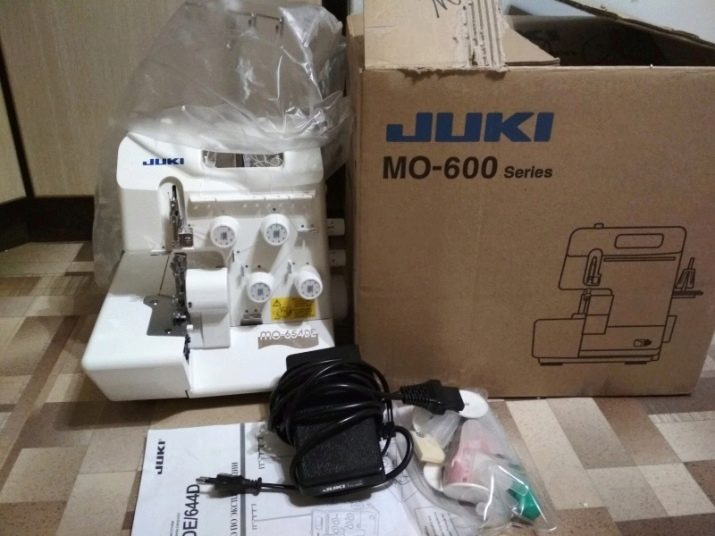
If you have an official instruction in Russian, you can easily thread the thread and get the machine ready for work. To lubricate the internal overlock mechanism or to perform operations such as threading or replacing the knife, refer to the instructions to avoid mistakes.
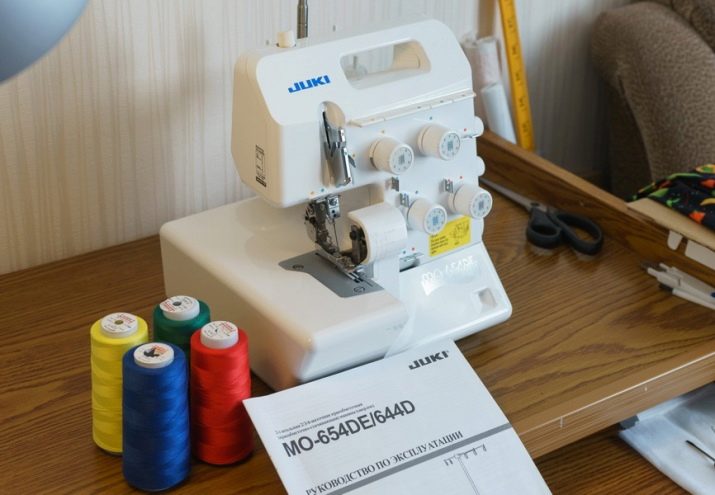
Generally easy setup operations are available even for a beginner. For example, you can replace the needle holder in just two easy steps by placing it on the stem as shown in the instructions and securing it with the retaining screw. For this task you will need a spanner or box wrench, hexagon.
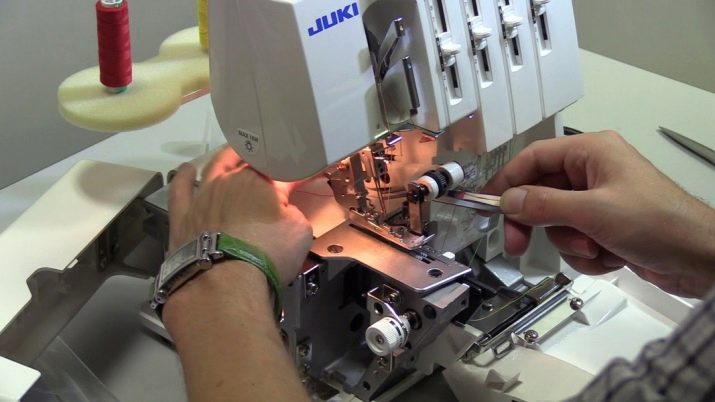
Thus, you do not need to worry about the complexities of setting - we recommend that when choosing a model, focus on which seams the overlock supports. The more seams a model can make, the more expensive it is.
Also consider the level of comfort - machines with automatic threading and thread adjustment are much more convenient to operate.
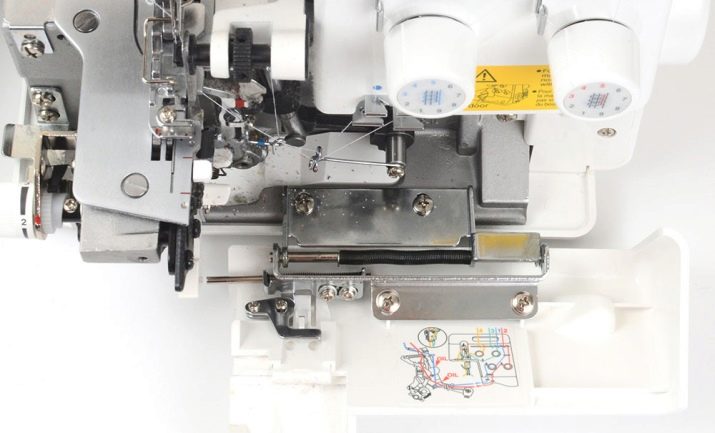
For information on how to choose an overlock, see the next video.








